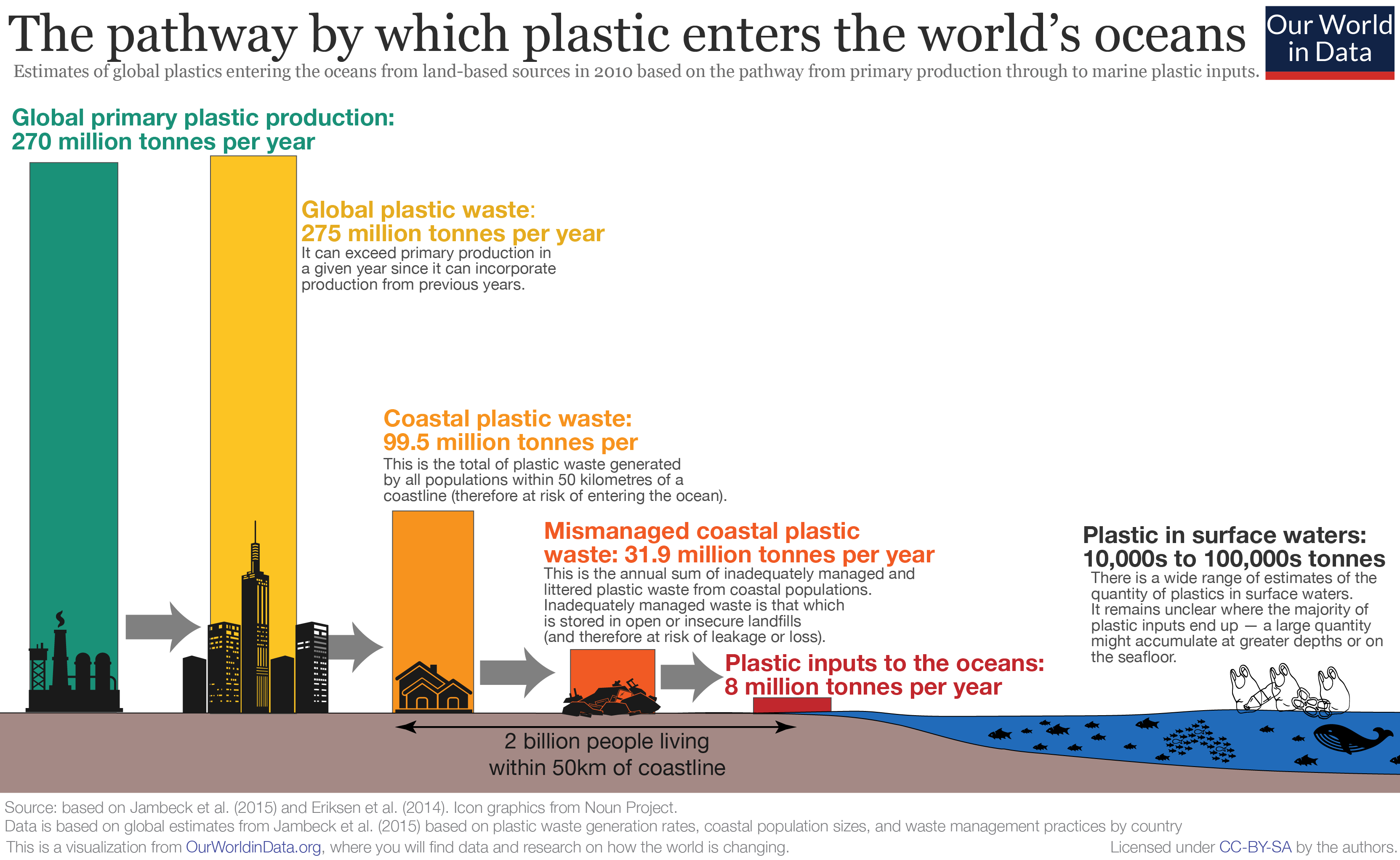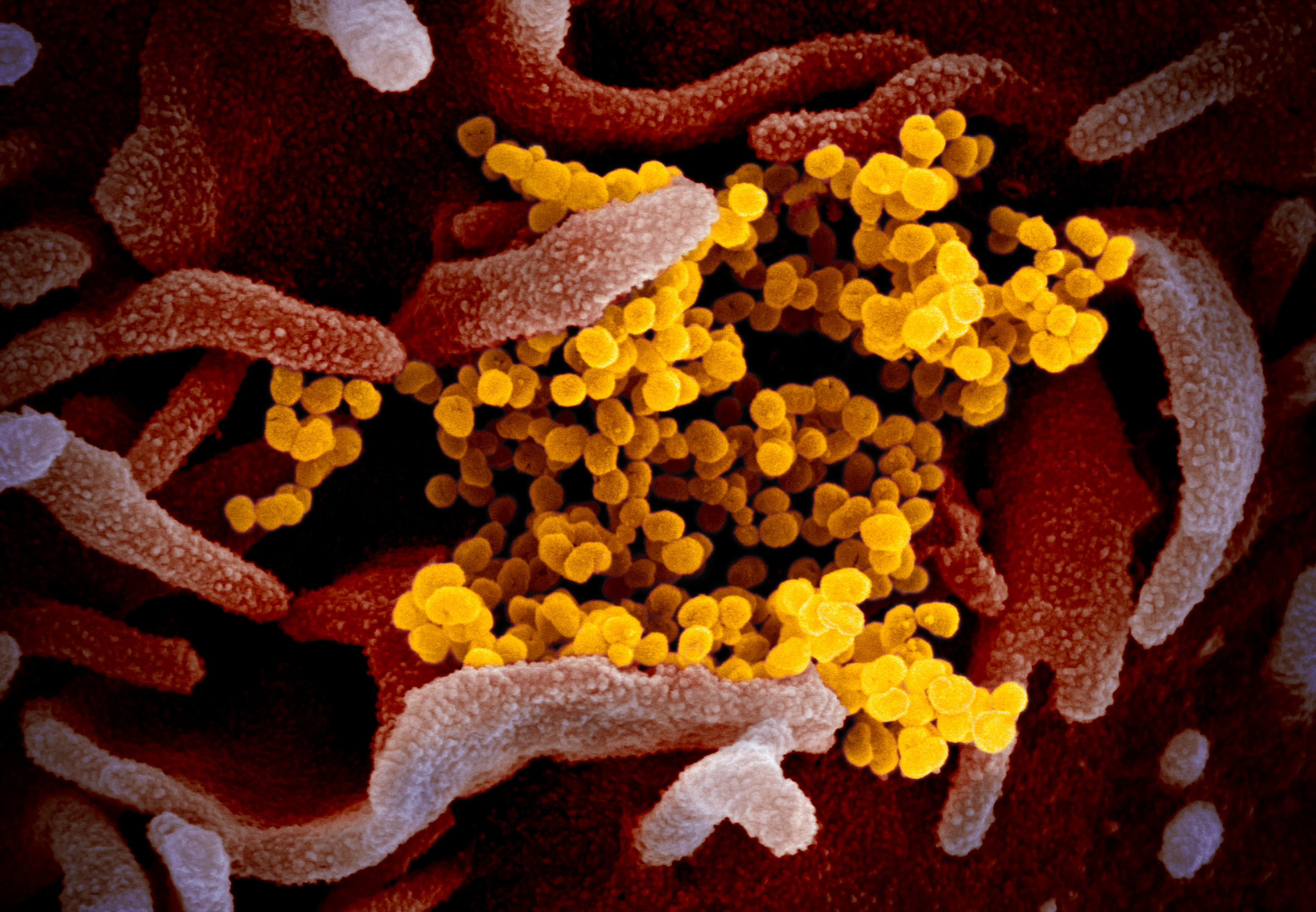|
Impact Of The COVID-19 Pandemic On The Environment
The COVID-19 pandemic has had an impact on the environment, with changes in human activity leading to temporary changes in air pollution, greenhouse gas emissions and water quality. As the pandemic became a global health crisis in early 2020, various national responses including lockdowns and travel restrictions caused substantial disruption to society, travel, energy usage and economic activity, sometimes referred to as the " anthropause". As public health measures were lifted later in the pandemic, its impact has sometimes been discussed in terms of effects on implementing renewable energy transition and climate change mitigation. With the onset of the pandemic, some positive effects on the environment as a result of human inactivity were observed. In 2020, carbon dioxide emissions fell by 6.4% or 2.3 billion tonnes globally. In April 2020, emissions fell by up to 30%. In China, lockdowns and other measures resulted in a 26% decrease in coal consumption, and a 50% redu ... [...More Info...] [...Related Items...] OR: [Wikipedia] [Google] [Baidu] |
Pollutant Drops In Wuhan China Due To Virus
A pollutant or novel entity is a substance or energy introduced into the environment that has undesired effects, or adversely affects the usefulness of a resource. These can be both naturally forming (i.e. minerals or extracted compounds like Extraction of petroleum, oil) or anthropogenic in origin (i.e. manufactured materials or byproducts from biodegradation). Pollutants result in Pollution, environmental pollution or become public health concerns when they reach a Pollutant concentration, concentration high enough to have significant negative impacts. A pollutant may cause long- or short-term damage by changing the growth rate of plant or animal species, or by interfering with human amenities, comfort, health, or property values. Some pollutants are biodegradable and therefore will not persist in the environment (biophysical), environment in the long term. However, the degradation products of some pollutants are themselves polluting such as the products Dichlorodiphenyldichl ... [...More Info...] [...Related Items...] OR: [Wikipedia] [Google] [Baidu] |
Green Recovery
Green recovery packages are proposed environmental, regulatory and fiscal reforms to build prosperity in the wake of an economic crisis, like the COVID-19 pandemic or the Global Financial Crisis. They pertain to fiscal measures that intend to recover economic growth while also positively benefitting the environment, including measures for renewable energy, efficient energy use, nature based solutions, sustainable transport, green innovation and green jobs, amongst others. For green recovery in response to the COVID-19 pandemic, support has come from multiple political parties, governments, activists and academia across the European Union, the United Kingdom, the United States, and other countries. Following similar measures in response to the Global Financial Crisis, a key part of the packages is to ensure that actions to combat recession also combat climate change, including the reduction of coal, oil, and gas use, clean transport, renewable energy, eco-friendly buildings, and su ... [...More Info...] [...Related Items...] OR: [Wikipedia] [Google] [Baidu] |
Waste Management
Waste management or waste disposal includes the processes and actions required to manage waste from its inception to its final disposal. This includes the collection, transport, treatment and disposal of waste, together with monitoring and regulation of the waste management process and waste-related laws, technologies, economic mechanisms. Waste can be solid, liquid, or gases and each type has different methods of disposal and management. Waste management deals with all types of waste, including industrial, biological, household, municipal, organic, biomedical, radioactive wastes. In some cases, waste can pose a threat to human health. Health issues are associated throughout the entire process of waste management. Health issues can also arise indirectly or directly. Directly, through the handling of solid waste, and indirectly through the consumption of water, soil and food. Waste is produced by human activity, for example, the extraction and processing of raw mate ... [...More Info...] [...Related Items...] OR: [Wikipedia] [Google] [Baidu] |
Face Masks During The COVID-19 Pandemic
During the COVID-19 pandemic, face masks or coverings, including N95, FFP2, surgical, and cloth masks, have been employed as public and personal health control measures against the spread of SARS-CoV-2, the virus that causes COVID-19. In community and healthcare settings, their use is intended as source control to limit transmission of the virus and for personal protection to prevent infection. Properly worn masks both limit the respiratory droplets and aerosols spread by infected individuals and help protect healthy individuals from infection. Masking has proven effective in reducing the transmission of COVID-19 and other airborne illnesses through many studies. Masks vary in how well they work, with N95 and surgical masks outperforming cloth masks, which are more common due to supply shortages, but even cloth masks, with their variability in fabric type and mask fit, provide wearers with substantial protection from particles carrying COVID-19. Among readily available fab ... [...More Info...] [...Related Items...] OR: [Wikipedia] [Google] [Baidu] |
Plastic Pollution
Plastic pollution is the accumulation of plastic objects and particles (e.g. plastic bottles, bags and microbeads) in the Earth's environment that adversely affects humans, wildlife and their habitat. Plastics that act as pollutants are categorized by size into micro-, meso-, or macro debris. Plastics are inexpensive and durable, making them very adaptable for different uses; as a result, manufacturers choose to use plastic over other materials. However, the chemical structure of most plastics renders them resistant to many natural processes of degradation and as a result they are slow to degrade. Together, these two factors allow large volumes of plastic to enter the environment as mismanaged waste and for it to persist in the ecosystem. Plastic pollution can afflict land, waterways and oceans. It is estimated that 1.1 to 8.8 million tonnes of plastic waste enters the ocean from coastal communities each year. It is estimated that there is a stock of 86 million tons of plastic ... [...More Info...] [...Related Items...] OR: [Wikipedia] [Google] [Baidu] |
Personal Protective Equipment
Personal protective equipment (PPE) is protective clothing, helmets, goggles, or other garments or equipment designed to protect the wearer's body from injury or infection. The hazards addressed by protective equipment include physical, electrical, heat, chemicals, biohazards, and airborne particulate matter. Protective equipment may be worn for job-related occupational safety and health purposes, as well as for sports and other recreational activities. ''Protective clothing'' is applied to traditional categories of clothing, and ''protective gear'' applies to items such as pads, guards, shields, or masks, and others. PPE suits can be similar in appearance to a cleanroom suit. The purpose of personal protective equipment is to reduce employee exposure to hazards when engineering controls and administrative controls are not feasible or effective to reduce these risks to acceptable levels. PPE is needed when there are hazards present. PPE has the serious limitation tha ... [...More Info...] [...Related Items...] OR: [Wikipedia] [Google] [Baidu] |
Biomedical Waste
Biomedical waste or hospital waste is any kind of waste containing infectious (or potentially infectious) materials. It may also include waste associated with the generation of biomedical waste that visually appears to be of medical or laboratory origin (e.g. packaging, unused bandages, infusion kits etc.), as well research laboratory waste containing biomolecules or organisms that are mainly restricted from environmental release. As detailed below, discarded sharps are considered biomedical waste whether they are contaminated or not, due to the possibility of being contaminated with blood and their propensity to cause injury when not properly contained and disposed. Biomedical waste is a type of biowaste. Biomedical waste may be solid or liquid. Examples of infectious waste include discarded blood, sharps, unwanted microbiological cultures and stocks, identifiable body parts (including those as a result of amputation), other human or animal tissue, used bandages and dressings, ... [...More Info...] [...Related Items...] OR: [Wikipedia] [Google] [Baidu] |
CNBC
CNBC (formerly Consumer News and Business Channel) is an American basic cable business news channel. It provides business news programming on weekdays from 5:00 a.m. to 7:00 p.m., Eastern Time, while broadcasting talk shows, investigative reports, documentaries, infomercials, reality shows, and other programs at all other times. Along with Fox Business and Bloomberg Television, it is one of the three major business news channels. It also operates a website and mobile apps, whereby users can watch the channel via streaming media, and which provide some content that is only accessible to paid subscribers. CNBC content is available on demand on smart speakers including Amazon Echo devices with Amazon Alexa, Google Home and app devices with Google Assistant, and on Apple Siri voice interfaces including iPhones. Many CNBC TV shows are available as podcasts for on-demand listening. Graphics are designed by Sweden-based Magoo 3D studios. CNBC is a divisi ... [...More Info...] [...Related Items...] OR: [Wikipedia] [Google] [Baidu] |
Green Energy
Energy is sustainable if it "meets the needs of the present without compromising the ability of future generations to meet their own needs". Most definitions of sustainable energy include considerations of environmental aspects such as greenhouse gas emissions and social and economic aspects such as energy poverty. Renewable energy sources such as wind, hydroelectric power, solar, and geothermal energy are generally far more sustainable than fossil fuel sources. However, some renewable energy projects, such as the clearing of forests to produce biofuels, can cause severe environmental damage. The role of non-renewable energy sources in sustainable energy has been controversial. Nuclear power is a low-carbon source whose historic mortality rates are comparable to wind and solar, but its sustainability has been debated because of concerns about radioactive waste, nuclear proliferation, and accidents. Switching from coal to natural gas has environmental benefits, including a l ... [...More Info...] [...Related Items...] OR: [Wikipedia] [Google] [Baidu] |
COVID-19 Recession
The COVID-19 recession, also referred to as the Great Lockdown, is a global economic recession caused by the COVID-19 pandemic. The recession began in most countries in February 2020. After a year of global economic slowdown that saw stagnation of economic growth and consumer activity, the COVID-19 lockdowns and other precautions taken in early 2020 drove the global economy into crisis. Within seven months, every advanced economy had fallen to recession. The first major sign of recession was the 2020 stock market crash, which saw major indices drop 20 to 30% in late February and March. Recovery began in early April 2020; by April 2022, the GDP for most major economies had either returned to or exceeded pre-pandemic levels and many market indices recovered or even set new records by late 2020. The recession saw unusually high and rapid increases in unemployment in many countries. By October 2020, more than 10 million unemployment cases had been filed in the United States, swa ... [...More Info...] [...Related Items...] OR: [Wikipedia] [Google] [Baidu] |
Environmental Policy
Environmental policy is the commitment of an organization or government to the laws, regulations, and other policy mechanisms concerning environmental issues. These issues generally include air and water pollution, waste management, ecosystem management, maintenance of biodiversity, the management of natural resources, wildlife and endangered species. For example, concerning environmental policy, the implementation of an eco-energy-oriented policy at a global level to address the issues of global warming and climate changes could be addressed. Policies concerning energy or regulation of toxic substances including pesticides and many types of industrial waste are part of the topic of environmental policy. This policy can be deliberately taken to influence human activities and thereby prevent undesirable effects on the biophysical environment and natural resources, as well as to make sure that changes in the environment do not have unacceptable effects on humans. Definition One w ... [...More Info...] [...Related Items...] OR: [Wikipedia] [Google] [Baidu] |
Poaching
Poaching has been defined as the illegal hunting or capturing of wild animals, usually associated with land use rights. Poaching was once performed by impoverished peasants for subsistence purposes and to supplement meager diets. It was set against the hunting privileges of nobility and territorial rulers. Since the 1980s, the term "poaching" has also been used to refer to the illegal harvesting of wild plant species. In agricultural terms, the term 'poaching' is also applied to the loss of soils or grass by the damaging action of feet of livestock, which can affect availability of productive land, water pollution through increased runoff and welfare issues for cattle. Stealing livestock as in cattle raiding classifies as theft, not as poaching. The United Nations' Sustainable Development Goal 15 enshrines the sustainable use of all wildlife. It targets the taking of action on dealing with poaching and trafficking of protected species of flora and fauna to ensure their avail ... [...More Info...] [...Related Items...] OR: [Wikipedia] [Google] [Baidu] |









